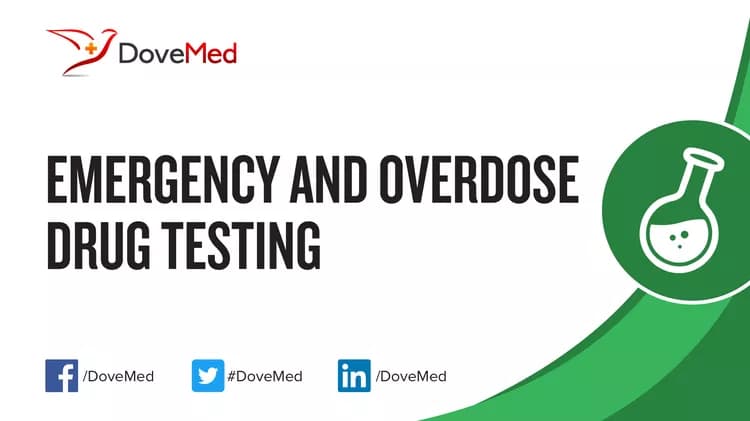
Emergency and Overdose Drug Testing
What are other Names for this Test? (Equivalent Terms)
- Drug Screening
- Poison Testing
- Toxicology Assaying
What is Emergency and Overdose Drug Testing? (Background Information)
- Virtually, all household (chemical-based) agents and drugs, whether over-the-counter (OTC), prescription, or illegal, can cause bodily harm, if ingested in dangerous amounts. This can occur accidentally or intentionally, in the case of abuse
- Some chemicals, such as bleach and antifreeze, are inherently toxic. They can cause bodily harm at any concentration and can be life-threatening in higher doses. Other chemicals, such as aspirin and acetaminophen, can be dangerous, if their recommended doses are exceeded
- Chemicals that are harmless may combine, to form dangerous interactions within the body. This may occur, if multiple drugs are taken simultaneously, accidentally, or on purpose
- The liver is the main detoxifying organ and the kidneys are the sites at which most drugs are excreted. If either of these organs is not functioning maximally, the body’s ability to detoxify drugs may be impaired
- Emergency and Overdose Drug Testing is done to detect, assess, and monitor, potential drug intoxication. It comprises multiple different tests, not all of which are ordered in every case. Some examples include:
- Testing for household agents, such as methanol, antifreeze, iron
- Testing for prescription and OTC drugs, such as acetaminophen, aspirin, digoxin, phenytoin, and carbamazepine
- Testing for illegal drugs of abuse, like opiates, cocaine, and tricyclic antidepressants (TCAs)
What are the Clinical Indications for performing the Emergency and Overdose Drug Testing?
The clinical indicators for performing Emergency and Overdose Drug Testing include suspected drug intoxication, which is marked by:
- Nausea, vomiting
- Abdominal pain
- Altered mental status
- Loss of consciousness
- Difficulty breathing, changes in heart rate
- Excessive sweating or dryness
- Slurred speech
- Impaired vision
How is the Specimen Collected for Emergency and Overdose Drug Testing?
Following is the specimen collection process for Emergency and Overdose Drug Testing:
Sample required: Blood, urine, saliva, or breath
Process:
- Insertion of a needle into an arm vein (blood)
- Urination into a sterile container (urine)
- Collection of saliva into a sterile container (saliva)
- Exhaling into a breathalyzer (breath)
Preparation required: No special preparation is needed prior to the test.
What is the Significance of the Emergency and Overdose Drug Testing Result?
The significance of Emergency and Overdose Drug Testing is explained:
- Drug levels beyond those in the acceptable range may indicate an overdose
- The reference range may vary, depending on the method used for testing in the laboratory
The laboratory test results are NOT to be interpreted as results of a "stand-alone" test. The test results have to be interpreted after correlating with suitable clinical findings and additional supplemental tests/information. Your healthcare providers will explain the meaning of your tests results, based on the overall clinical scenario.
Additional and Relevant Useful Information:
- Individuals, who handle samples taken from a suspected overdose case, must abide by the “chain of custody” rules. These outline the procedures for recording any contact made with samples, on their way to analysis. This is crucial in medico-legal situations
- Many conditions may elicit reactions that resemble those of a drug overdose. These include epileptic seizures and severe uncontrolled diabetes
Certain medications that you may be currently taking may influence the outcome of the test. Hence, it is important to inform your healthcare provider, the complete list of medications (including any herbal supplements) you are currently taking. This will help the healthcare provider interpret your test results more accurately and avoid unnecessary chances of a misdiagnosis.
Related Articles
Test Your Knowledge
Asked by users
Related Centers
Related Specialties
Related Physicians
Related Procedures
Related Resources
Join DoveHubs
and connect with fellow professionals

0 Comments
Please log in to post a comment.